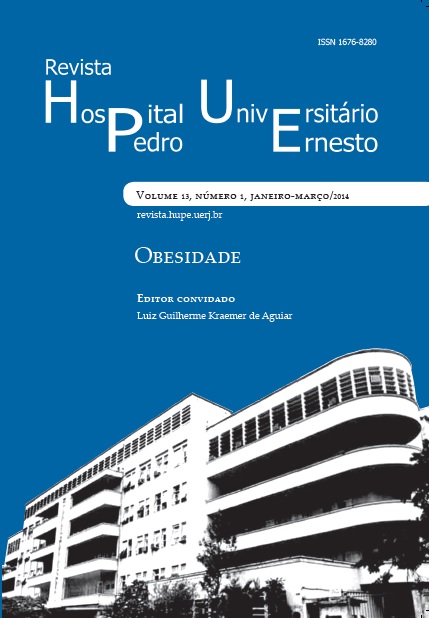Bariatric surgery in the treatment of obesity: impacts on bone metabolism
DOI:
https://doi.org/10.12957/rhupe.2014.9811Abstract
Obesity is a public health problem of epidemic proportions that affects a significant portion of the world population. The increase of morbidity associated with obesity is particularly important because it is related to increased risk of chronic diseases. Diets and stimulation to physical activity, in association to behavioral therapy, are the initial approach to the problem, which may include the use of pharmacological agents. Exhausted the chances of success of clinical treatment, surgical treatment is indicated. Besides the benefit of significant weight reduction, bariatric surgery is associated with reduction in the incidence of diabetes, dyslipidemia and mortality. However, adverse effects of bariatric surgery should be considered, which can occur both in the short term, as in the long term. Changes in calcium and vitamin D metabolism and bone loss in post-operative care are significant adverse effects that have been reported in recent years. Deficiency of vitamin D leads to decreased intestinal calcium absorption, reduced calcium levels and parathyroid hormone rise, determining increased bone calcium mobilization and decreased renal elimination, along with increased phosphate clearance. Obese subjects who undergo procedures that promote restriction and/or malabsorption of nutrients are at greatest risk of changes in the metabolism of calcium, phosphorus and vitamin D deficiency. Bone loss begins in the first months after surgery. Surgical techniques that cause malabsorption are at the higher risk levels for developing bone diseases. However, there are studies demonstrating changes in bone metabolism in purely restrictive techniques. Regarding fractures risk, it is known that low body weight is a risk factor for fractures, especially in the elderly. However, few studies have demonstrated the occurrence of fractures after bariatric surgery, which is controversial. Based on this review, bariatric surgery is associated with reduced calcium absorption, vitamin D deficiency, bone loss and possibly increased risk of fractures.Downloads
Published
2014-03-17
Issue
Section
Artigos


